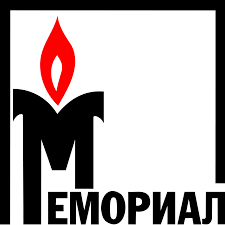The European Union agreed Monday to impose targeted sanctions against Russian officials and entities allegedly involved in the poisoning of Russian opposition leader Alexei Navalny but officials insisted the move should not undercut Europe’s continued high-level contacts with President Vladimir Putin, The Wall Street Journal reports:
Separately, the bloc agreed to impose a new round of sanctions on Belarus officials, including President Alexander Lukashenko, over the repression of protesters and what western capitals say was the fraudulent presidential elections of Aug. 9. Mr. Putin has backed Mr. Lukashenko.
“We should have had them earlier,” said Latvian Foreign Minister Edgars Rinkevics. “This is inevitable if you have 27 members. It shows that even with delays, the E.U. is capable inevitably to make decisions.”
The dramatic change of the Kremlin’s policy toward Alexei Navalny speaks to its concern about securing victory for the United Russia Party in the future.
Apple: https://t.co/9NxDaDr9ko
Spotify: https://t.co/RHSvQbRm05 pic.twitter.com/NPVodRGfEz— CSIS (@CSIS) October 12, 2020
The dramatic shift in policy toward Navalny speaks to its concern about securing victory for the United Russia Party, a CSIS forum heard (above). The Kremlin is “more prone to use violence” and employ some kind of stratagem to prevent Navalny returning to Russia.
After more than a month-long recovery in Germany, the 44-year-old Navalny is making rounds of TV appearances and blames the Kremlin and personally Russian President Vladimir Putin for the attack, Fox News adds.

Vladimir Kara Murza (far right) with NED’s Carl Gershman (center) and Senator John McCain
“It is excruciatingly painful and very frightening to have to live through this when you’re trying to take in the air and you suffocate and you cannot breathe and you just feel life going out of your body,” said Russian democracy activist Vladimir Kara-Murza, standing in front of the Russian Embassy in Washington, D.C., on Boris Nemtsov Plaza, named after his lifelong friend, the late Russian opposition leader who was gunned down near from the Kremlin in 2015.
Kara-Murza thinks there are two main reasons why Russian security services like this method – plausible deniability and sadism.
EU foreign ministers agreed to impose sanctions on Belarusian President Alexander Lukashenko in response to a crackdown on protesters https://t.co/pUbn3hHxFS via @WSJ
— Democracy Digest (@demdigest) October 12, 2020
Western democracies have expressed concern and outrage over the poisoning of Navalny—and this is clearly right and necessary, notes Olivier Rolin, author of Le Météorologue (Stalin’s Meteorologist, 2017). But much less attention is being paid to the case of Yuri Dmitriev, a tenacious researcher and activist who campaigned to create a memorial to the victims of Stalinist terror in Karelia, a province in Russia’s far northwest, bordering Finland. He has just been condemned on appeal by the Supreme Court of Karelia to thirteen years in a prison camp with a harsh regime.
 The hearing was held in camera, with neither him nor his lawyer present. For this man of sixty-four, this is practically equivalent to a death sentence, the judicially sanctioned equivalent of a drop of nerve agent, he writes for the New York Review of Books:
The hearing was held in camera, with neither him nor his lawyer present. For this man of sixty-four, this is practically equivalent to a death sentence, the judicially sanctioned equivalent of a drop of nerve agent, he writes for the New York Review of Books:
After several years’ digging in the FSB archive, he published The Karelian Lists of Remembrance in 2002, which, at the time, contained notes on 15,000 victims of the Terror….“I was not allowed to photocopy. I brought a dictaphone to record the names and then I wrote them out at home,” he said. “For four or five years, I went to bed with one word in my head: rastrelian—shot. Then, I and two fellow researchers from the Memorial association, Irina Flighe and Veniamin Ioffe (and my dog Witch), discovered the Sandarmokh mass burial ground: hundreds of graves in the forest near Medvejegorsk, more than 7,000 so-called enemies of the people killed there with a bullet through the base of the skull at the end of the 1930s.”
Stalin’s heirs today claim that the dead lying there in Karelia were not victims of the Terror but Soviet prisoners of war executed during the Finnish occupation of the region at the beginning of World War II. Historical revisionism, under Putin, knows no bounds, Rolin adds.
For further information, visit The Dmitriev Affair.
Yuri Dmitriev: Historian of Stalin’s Gulag, Victim of Putin’s Repression https://t.co/2nv57yrUcy via @nybooks
— Democracy Digest (@demdigest) October 12, 2020







